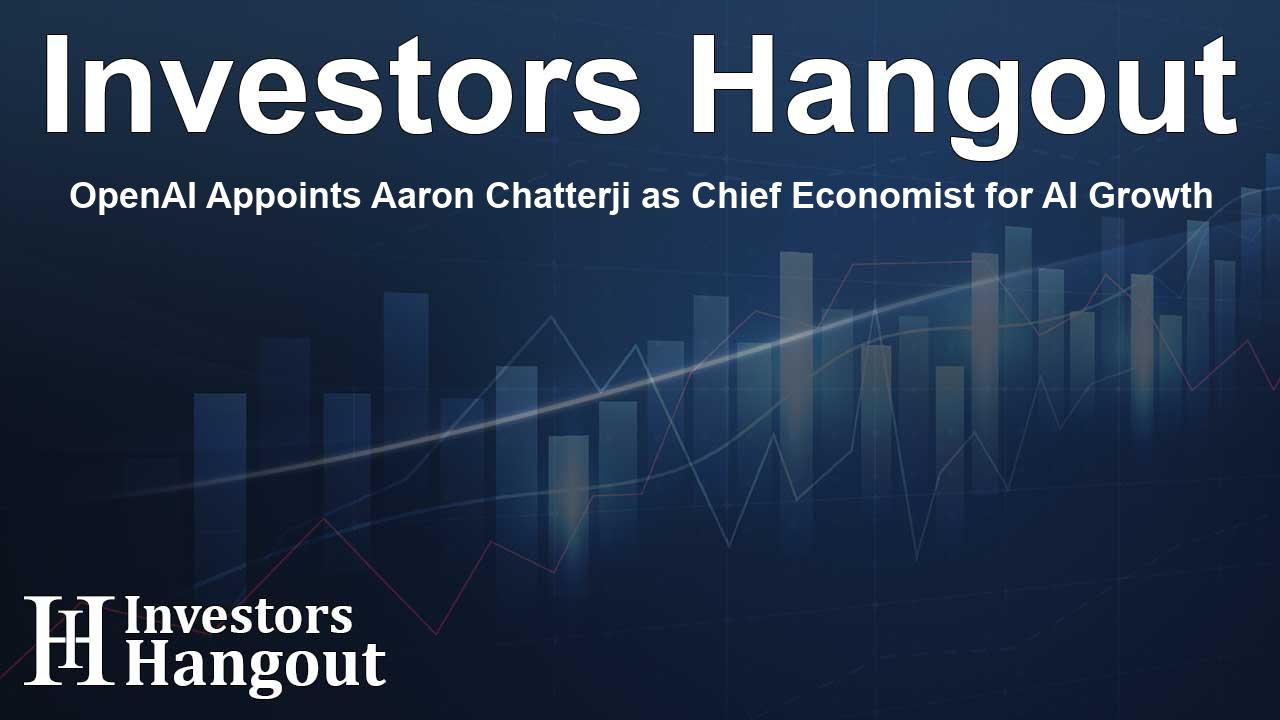OpenAI Appoints Aaron Chatterji as Chief Economist for AI Growth

OpenAI Makes Strategic Move with New Chief Economist
In a significant development, OpenAI has appointed Aaron Chatterji as its first chief economist. This announcement underlines OpenAI's commitment to understanding the economic implications of artificial intelligence, particularly as the sector continues to expand rapidly.
Aaron Chatterji: A Leader in Economic Policy
Chatterji brings a wealth of experience to this new role. As a professor of business and public policy at Duke University, his academic background is robust. Moreover, he previously served as the CHIPS coordinator at the White House, managing the $52.7 billion funding initiative aimed at bolstering U.S. semiconductor production.
Former Roles Enhance His Expertise
His journey in public service includes key positions like the chief economist at the Department of Commerce under President Biden and a senior economist with President Obama’s Council of Economic Advisers. These roles have equipped him with a unique perspective that aligns well with OpenAI's mission.
Researching AI's Economic Impact
In his capacity as chief economist, Chatterji will spearhead research focused on the potential effects of artificial intelligence on economic growth and job creation. OpenAI aims to delve into how AI infrastructure influences global economies and labor market trends over the long run.
Understanding Long-term Economic Trends
This research initiative will not only focus on the domestic landscape but also on international dynamics, enabling a comprehensive view of AI's role in shaping various economies. Insights from this research are expected to guide OpenAI's strategies moving forward.
OpenAI Strengthens Its Leadership Team
In parallel, OpenAI has also welcomed Scott Schools, a former executive at Uber, as its chief compliance officer. Schools' background includes crucial experience as an associate deputy attorney general at the U.S. Department of Justice, making him a valuable asset to the organization.
Recent Executive Changes at OpenAI
These appointments form part of a series of executive changes that OpenAI has recently undertaken. The company is clearly focused on strengthening its leadership team to better navigate the evolving landscape of artificial intelligence.
Frequently Asked Questions
What is the role of Aaron Chatterji at OpenAI?
Aaron Chatterji is appointed as the chief economist at OpenAI, where he will lead research on AI's impact on the economy.
What previous positions has Chatterji held?
He has served as chief economist at the Department of Commerce and as a senior economist in the Obama administration.
Who else was appointed alongside Chatterji?
Scott Schools, a former Uber executive, was appointed as the chief compliance officer of OpenAI.
What will Chatterji's research focus on?
His research will investigate AI's influences on economic growth, job creation, and global economic impacts from AI infrastructure.
How does OpenAI view these appointments?
The appointments are part of OpenAI's strategy to enhance its leadership and navigate the challenges of the AI industry.
About Investors Hangout
Investors Hangout is a leading online stock forum for financial discussion and learning, offering a wide range of free tools and resources. It draws in traders of all levels, who exchange market knowledge, investigate trading tactics, and keep an eye on industry developments in real time. Featuring financial articles, stock message boards, quotes, charts, company profiles, and live news updates. Through cooperative learning and a wealth of informational resources, it helps users from novices creating their first portfolios to experts honing their techniques. Join Investors Hangout today: https://investorshangout.com/
Disclaimer: The content of this article is solely for general informational purposes only; it does not represent legal, financial, or investment advice. Investors Hangout does not offer financial advice; the author is not a licensed financial advisor. Consult a qualified advisor before making any financial or investment decisions based on this article. The author's interpretation of publicly available data shapes the opinions presented here; as a result, they should not be taken as advice to purchase, sell, or hold any securities mentioned or any other investments. The author does not guarantee the accuracy, completeness, or timeliness of any material, providing it "as is." Information and market conditions may change; past performance is not indicative of future outcomes. If any of the material offered here is inaccurate, please contact us for corrections.